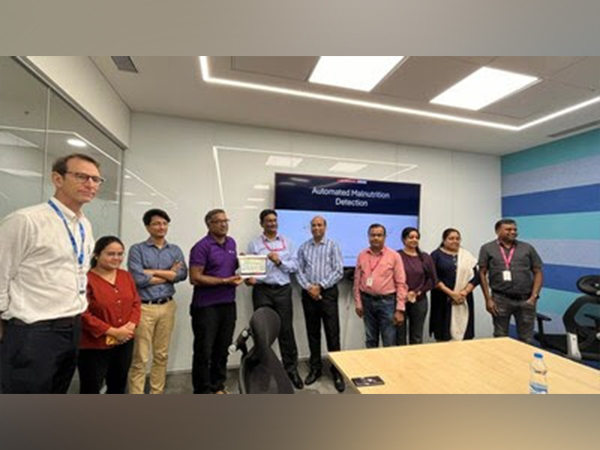
Feature: Empowering women initiative helps rural women in Namibia have a better future
Oct 16, 2022
Windhoek (Namibia), October 1: "I have been weaving baskets since my 20s. Talent alone could not translate into business success due to a lack of knowledge on accessing other markets," said Johanna Ndjodhi from Akoonde village in the Oshikoto region in the northern part of Namibia.
Ndjodhi, now in her 40s, until recently had struggled to commercialize her handmade craft products beyond her village borders.
In August this year, things have started to change when she joined five other women at a newly formed women empowerment initiative run by ShaNangolo Arts Academy, an art project based in Windhoek, the capital of Namibia.
Through the project, rural women who do not have access to opportunities are trained and helped to improve their skills in handmade crafts, including basket-weaving, jewellery, marketing, and how to modernize traditional items.
The academy has also exposed the women to exhibitions and local retailers such as the Local Merchant Shop, a one-stop shop for local products and has als.
With the increased exposure, Ndjodhi becomes one of the rural women in the northern part of Namibia who has transformed indigenous knowledge of handmade crafts into entrepreneurship to help improve livelihoods.
Thanks to the training and links to other markets, Ndjodhi has been able to sell her products on the mainstream market.
"It felt like a dream," she told Xinhua on Saturday. "Since then, the initiative has redefined a new meaning to my life. I would spend many days wandering at home, looking at how to keep active."
"In less than two months, I found a vocation," she said.
Josefina Awala, the founder of ShaNangolo Art Academy, said the aim of the initiative is to bridge gaps that impede women in remote areas.
"We aim to build capacity by introducing them to new ways of weaving, exploring unconventional tools such as old newspapers in making art products. But most importantly, link them to mainstream markets," Awala said.
Awala hopes to scale up the initiative to reach and empower more than 100 women in the next five years."The power is in working together and tapping on the diverse skills to uplift their livelihoods," said Awala.
Ndjodhi is not the only one benefiting from the initiative. Rural women have hailed the project for forging a sustainable path forward.
Memory Mubita from Omayinda village said that the project rescued her from unemployment. "I was struggling not only to find a vocation but also income. This is my lifeline now," said 24-year-old Mubita.
Rauna Lazarus, another beneficiary from Okashanakiiyenda village, learned to communicate better with clients and general customer service etiquette.
"I was happy to represent the project at my first-ever exhibition during heritage week, something I never imagined I would do. I also made a sale, and it was an ecstatic moment," Lazarus said.
Meanwhile, the project marked a milestone for many women, with a ripple effect on households and social progression.
"We are still learning more, and I am optimistic that with the skills gained and income, I will be able to support my family better and realize my goal to take my children through school. The future is bright," Ndjodhi said.
Source: Xinhua






